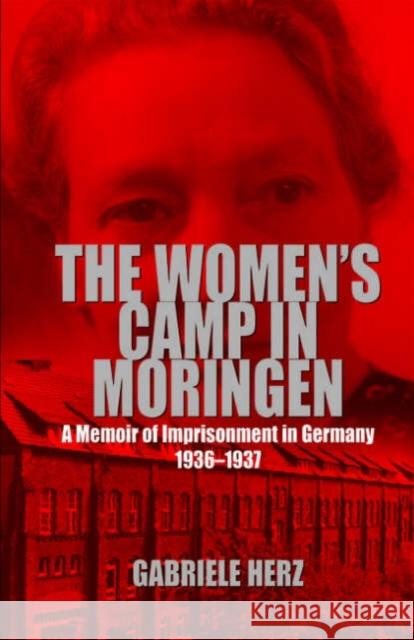The Women's Camp in Moringen: A Memoir of Imprisonment in Germany 1936-1937 » książka
The Women's Camp in Moringen: A Memoir of Imprisonment in Germany 1936-1937
ISBN-13: 9781845450779 / Angielski / Twarda / 2006 / 200 str.
The Women's Camp in Moringen: A Memoir of Imprisonment in Germany 1936-1937
ISBN-13: 9781845450779 / Angielski / Twarda / 2006 / 200 str.
(netto: 482,14 VAT: 5%)
Najniższa cena z 30 dni: 498,70
ok. 30 dni roboczych
Bez gwarancji dostawy przed świętami
Darmowa dostawa!
The Nazi regime opened its first concentration camps within weeks of coming to power, but with the exception of Dachau the history of these early, improvised camps and their inmates is not yet widely known. Gabriele Herz's memoir, published for the first time, is a unique record of a Jewish woman's detention in the first women's concentration camp in Moringen (housed in part of an old-established workhouse), at a time when most other inmates were communists or Jehovah's Witnesses. This original translation of her wry and perceptive memoir is accompanied by an extensive introduction that sets Herz's experience in the history both of political detention under the Nazi regime and of the German workhouse system.
"Gabriele Herzs memoir is important on the one hand because of its description of individual experience through its use of the personal perspective. On the other hand, it also presents an important document for the historiography of the early concentration camps and of the experience of the persecution of Jewish women in 1930s Germany in particular. The historian Jane Caplan wrote a highly informative introduction that outlines the wider context and the complexities of Gabriele Herzs memoir." · querelles-net.deThe Nazi regime opened its first concentration camps within weeks of coming to power, but with the exception of Dachau the history of these early, improvised camps and their inmates is not yet widely known. Gabriele Herzs memoir, published for the first time, is a unique record of a Jewish womans detention in the first womens concentration camp in Moringen (housed in part of an old-established workhouse), at a time when most other inmates were communists or Jehovahs Witnesses. This original translation of her wry and perceptive memoir is accompanied by an extensive introduction that sets Herzs experience in the history both of political detention under the Nazi regime and of the German workhouse system.Translated by Hildegard Herz and Howard Hartig. Edited and with an Introduction by Jane Caplan, Fellow of St Antonys College, Oxford, and University Lecturer in Modern History.











